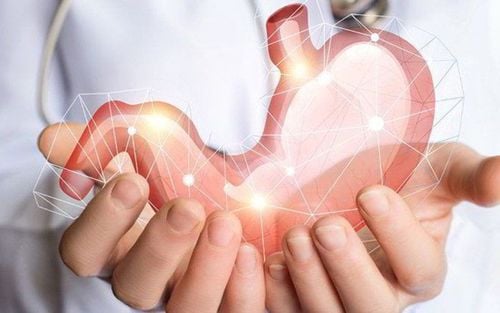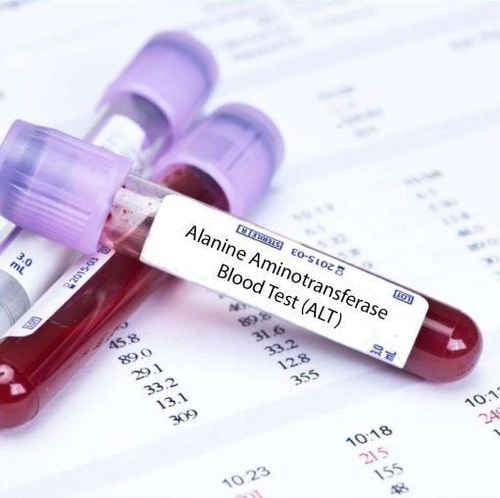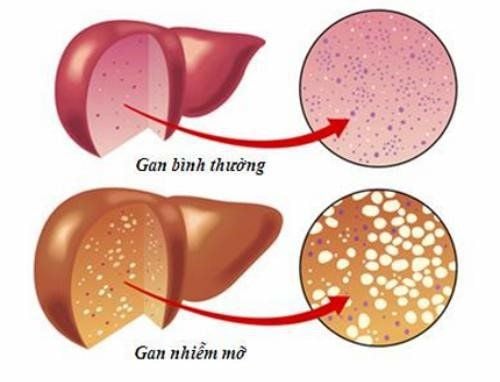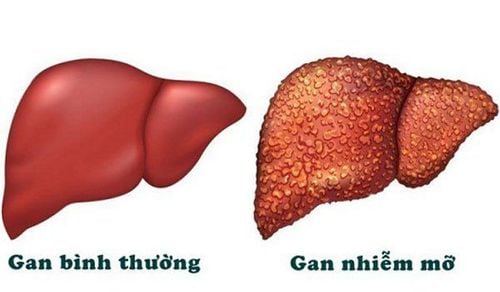Fatty liver is a common condition among individuals who abuse alcohol, are obese, and have a sedentary lifestyle. It is one of the main causes of liver failure. However, fatty liver disease can be treated by making dietary changes.
1. What is Fatty Liver Disease?
Fatty liver disease is a condition characterized by an excess of fat in the liver. Normally, the liver functions to remove toxins and produce bile and digestive proteins. Fatty liver disease damages the liver and prevents it from functioning properly.
There are two types of fatty liver: alcohol-related fatty liver and non-alcoholic fatty liver. The main cause of alcohol-related fatty liver is excessive alcohol consumption, which harms the liver. On the other hand, non-alcoholic fatty liver disease is diagnosed in individuals who are obese and have a sedentary lifestyle.
One of the ways to treat fatty liver disease in general is to make scientific dietary changes. Overall, a scientific diet for patients with fatty liver should meet the following conditions:
- Eat plenty of fruits
- Consume more fiber, such as legumes and whole grains
- Limit sugar and fat intake, which can help you lose weight and reduce the risk of fatty liver disease.
- Eat low-sodium foods
- Say no to alcoholic beverages such as beer and wine.

2. Foods Beneficial for People with Fatty Liver Disease
Here are some foods that are good for fatty liver that you should include in your diet:
2.1. Coffee with Liver-Enzyme Lowering Effects
Studies have shown that people who regularly drink coffee while suffering from fatty liver disease have less liver damage than those who do not drink coffee. Caffeine helps reduce abnormal liver enzyme levels in those at risk for liver diseases.
2.2. Leafy Greens Help Prevent Fat Accumulation in the Liver
Vegetables in general, and broccoli in particular, help prevent fat accumulation in the liver. Eating plenty of leafy greens like spinach and kale can also aid in weight loss.
2.3. Tofu Reduces Fat Accumulation
The protein content in tofu helps reduce fat accumulation in the liver. Additionally, tofu is low in fat and high in protein.
2.4. Fish
Fatty fish like salmon, sardines, tuna, and mackerel are rich in omega-3 fatty acids. Omega-3 fatty acids improve liver fat levels.
2.5. Oatmeal
Carbohydrates from whole grains like oatmeal not only provide energy for the body but also their fiber content helps keep you feeling full longer and maintains your weight.
2.6. Walnuts
Nuts in general, and walnuts in particular, are rich in omega-3 fatty acids. Many studies have shown that people with fatty liver disease who regularly consume walnuts have improved liver function test results.
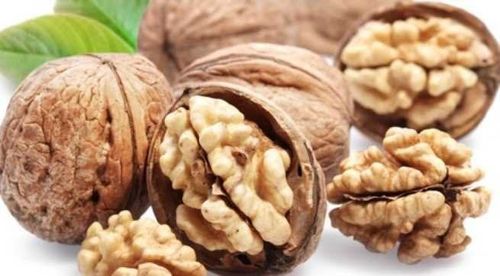
2.7. Avocado
Avocado is known for its healthy fats and compounds that can slow down liver damage. It is also rich in fiber, which helps with weight management.
2.8. Milk and Low-Fat Dairy Products
Milk, especially low-fat milk, has a high whey protein content that can protect the liver from damage.
2.9. Sunflower Seeds Help with Antioxidation
Sunflower seeds are rich in vitamin E, an antioxidant that can protect the liver from damage.
2.10. Olive Oil for Weight Management
Olive oil is known as a healthy oil that contains many omega-3 fatty acids. It helps reduce liver enzyme levels and manage weight.
2.11. Garlic
Garlic not only enhances the flavor of dishes but studies show that it helps reduce body weight and fat in individuals with fatty liver disease.
2.12. Green Tea
Green tea can reduce fat storage in the liver and improve liver function. Additionally, it offers other health benefits such as lowering cholesterol and promoting better sleep.

3. Foods to Avoid for People with Fatty Liver Disease
Fatty liver is a condition characterized by excessive fat accumulation in the liver. Therefore, foods to avoid include those high in unhealthy fats and alcoholic beverages. These foods contribute to weight gain and increased blood sugar levels.
- Alcohol is a major cause of fatty liver disease as well as other liver diseases.
- Sugar: Foods high in sugar, such as candies, cookies, sodas, and fruit juices, should be avoided by individuals with fatty liver disease, as they raise blood sugar levels and lead to fat accumulation in the liver.
- Fried and Greasy Foods should be avoided.
- Salt: Excessive salt intake can cause water retention in the body.
- White Bread, Rice, and Pasta: These can increase blood sugar levels more than whole grains.
- Red Meat such as beef and processed meats should be limited due to their high saturated fat content.
In addition to avoiding unhealthy foods, you should also make lifestyle changes to improve liver health, such as:
- Maintaining an Exercise Routine: Regular exercise combined with a proper diet helps you lose weight and manage liver disease. Aim for at least 30 minutes of aerobic exercise each day.
- Reducing Cholesterol: Monitor saturated fats and sugars to help control cholesterol and triglyceride levels. If diet and exercise are insufficient to lower cholesterol, consult your doctor about medication options.
- Managing Diabetes: Diabetes and fatty liver disease often occur together. A proper diet and exercise can help manage both conditions. If your blood sugar remains high, inform your doctor so they can prescribe medication to lower it.
Please dial HOTLINE for more information or register for an appointment HERE. Download MyVinmec app to make appointments faster and to manage your bookings easily.




